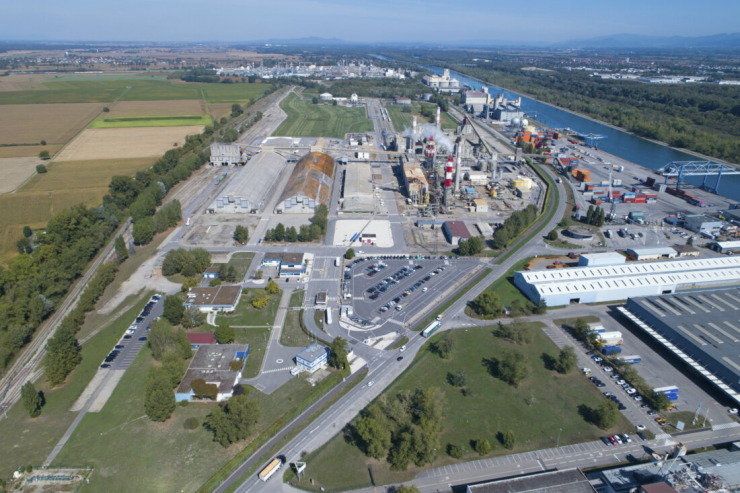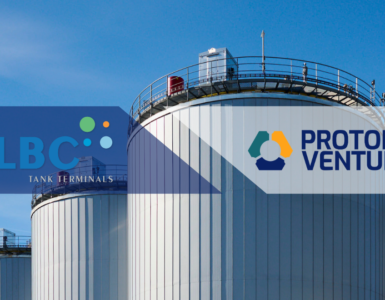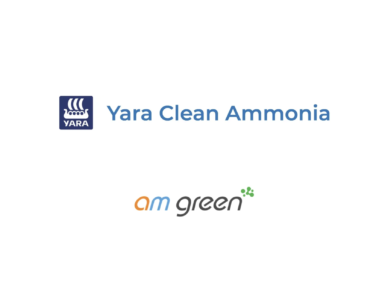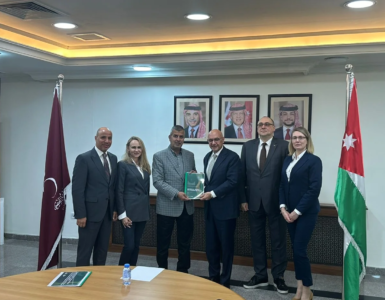Borealis and Hynamics jointly work on project to produce low-carbon ammonia.
Borealis, one of the world’s leading providers of advanced and circular polyolefin solutions and a European market leader in base chemicals, fertilizers and the mechanical recycling of plastics, and Hynamics, a subsidiary of the EDF group specializing in decarbonised hydrogen, have signed a memorandum of understanding (MOU) to explore the development of a project for low-carbon ammonia production at the Borealis fertilizer production site in Ottmarsheim, near Mulhouse, France.
This project could deliver the installation of a 30 megawatt (MW) electrolysis station for the production of 4,300 tons of low-carbon hydrogen per year. Powered by the French low-carbon electricity mix, this station will provide hydrogen to the Borealis site in order to produce 24,000 tons of low-carbon ammonia per year by 2025-2026.
Ultimately, 33,000 tons of CO2 will be avoided each year. The ammonia produced by Borealis in Ottmarsheim is mainly used for the production of fertilizers. However, other uses for low-carbon ammonia, for example in industry and shipping, will be studied.
🔥 What about we co-host a webinar? Let's educate, captivate, and convert the hydrogen economy!
Hydrogen Central is the global go-to online magazine for the hydrogen economy, we can help you host impactful webinars that become a global reference on your topic and are an evergreen source of leads. Click here to request more details
The project, which brings together a producer and a consumer of low-carbon hydrogen, represents a first step in the decarbonisation of an ecosystem comprising the South Rhine region and the Chalampé/Ottmarsheim platform. The site’s proximity to Germany and Switzerland also offers prospects of cross-border collaboration.
The first phase of the project, for which the Borealis and Hynamics teams have already been mobilised, consists of consolidating technical and economic approaches while requesting French and European funding.
Leo Alders, CEO of the Borealis’ Fertilizer, Technical Nitrogen and Melamine business, comments:
We acknowledge climate change as the most critical challenge facing society today and aim to contribute to reducing carbon emissions.
“Producing low-carbon ammonia will help Borealis and the entire value chain to reduce CO2 emissions. We are happy to find an innovative partner in Hynamics to jointly investigate how we can pioneer this process in the region.”
Christelle Rouillé, CEO of Hynamics, says:
The ability of major industrial players to reduce their CO2 emissions is absolutely crucial.
“Hynamics stands by their side for the implementation of innovative and efficient solutions that will achieve these objectives. Ottmarsheim’s innovative and ambitious project makes this commitment a reality. We look forward to joining forces with Borealis for the decarbonisation of the fertilizer sector.”
Agnès Pannier-Runacher, Minister Delegate for Industry, says:
This new hydrogen project to decarbonise our industry is beneficial for our climate but also for the resilience of the Chalampé platform activities.
“This project will reduce the exposure to gas prices that hit our industry hard this winter, and prepare for future low-carbon fertilizers our economy will need.”
Jean Rottner, president of the Grand Est region, comments:
True to its commitment to the decarbonisation of our industry, the Grand Est Region has chosen to place its trust in the Borealis and Hynamics (EDF Group) project.
“This innovative project through the use of electrolytic hydrogen as a decarbonisation process will be the first in France by its scale. This is an opportunity for our region, which is positioning itself on a national level as a pioneer in the decarbonisation of the fertilizer sector. I salute our two partners, thanks to whom the Grand Est stands out as a model in the fight for energy transition.” Thanks for staying up to date with Hydrogen Central.
Yves Hemedinger, deputy of the Haut Rhin and advisor of Alsace, concludes:
The agreement signed between Borealis and Hynamics is perfectly in line with the dynamic of strengthening the hydrogen ecosystem in the region south of the Upper Rhine.
“Their hydrogen production project to produce low-carbon ammonia meets the current regional needs of industry decarbonisation, energy transition but also economic development and job creation.”
Borealis and Hynamics jointly work on project to produce low-carbon ammonia, November 30, 2021








